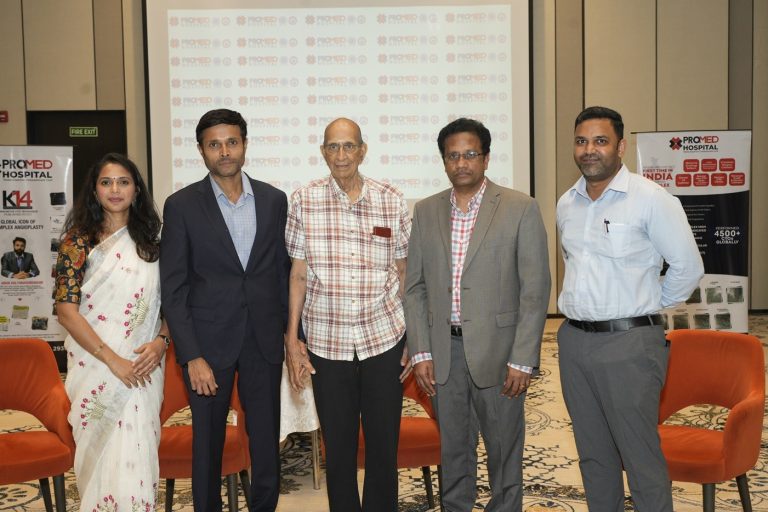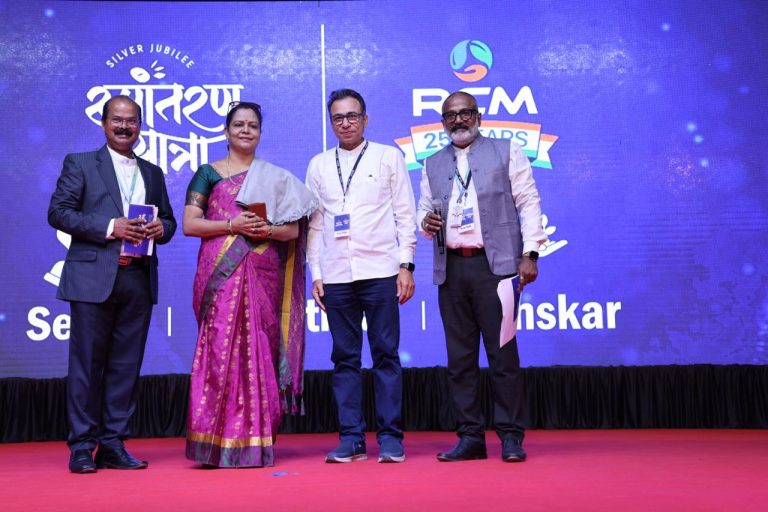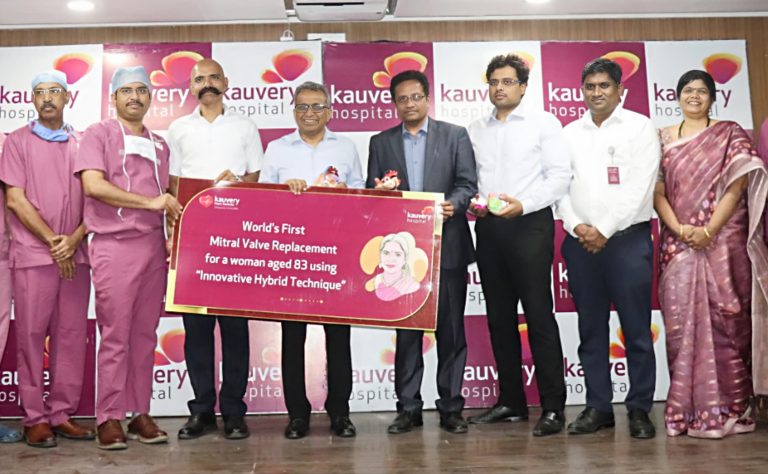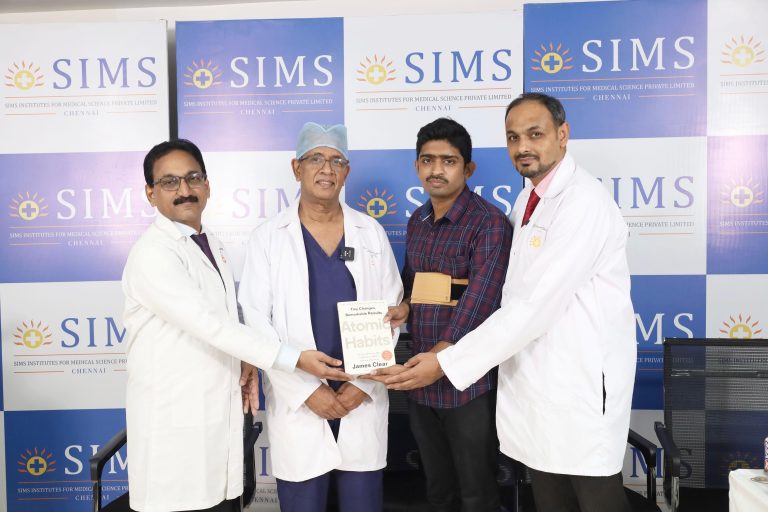
Chennai, 7th October, 2025: In a remarkable medical feat, doctors at SIMS Hospital successfully saved the life of a 28-year-old engineering student from Kerala, who was suffering from a rare and life-threatening heart condition.
The young man had been experiencing severe breathing difficulties for two months. After visting several hospital in Kerala, he was diagnosed with a rare combination of two serious heart issues – a “porcelain aorta” (a severely hardened and fragile main artery) and “aortic valve stenosis” (a narrowing of the valve that controls blood flow from the heart). Due to the complexity and high risk of surgery, local hospitals advised against surgery.
Not giving up hope, the patient travelled to Aortic aneurysm Centre at SIMS Hospital in Chennai, where a team of expert heart surgeons took on the challenge. The surgical team performed a mechanical aortic valve replacement, navigating the extraordinary challenge of suturing the heavily calcified aorta, the very structure on which the aortic valve sits. The complexity of the case posed a high risk, given that a porcelain aorta is brittle and difficult to operate on, making the surgery extremely challenging.
The complex surgery, lasting over five hours, was performed by Dr. V V Bashi, Director & Senior Consultant, Institute of Cardiac & Advanced Aortic Diseases, and Dr. Mohammed Idhrees, Consultant Cardiothoracic Surgeon, with the support from anesthetists: Dr. Aju Jacob, Senior Consultant, Cardiac Anaesthesia, and Dr. Arun Kumar A, Consultant, Anaesthesia and team of nurses and perfusionists
In his comments, Dr. Bashi said, “The aorta, the body’s largest artery, carries oxygen-rich blood from the heart, while the aortic valve ensures smooth blood flow and prevents backflow. In this patient, the valve was severely narrowed and the aorta heavily calcified. This was a highly complex case because of the dual risk posed by a stenotic aortic valve and a porcelain aorta, both of which are extremely rare in young people. Aortic valve stenosis is common in older adults, usually developing gradually due to calcium buildup over many years. However, it is extremely rare in someone under 30. Likewise, a porcelain aorta is very uncommon in young patients. Our team meticulously planned and executed the procedure carefully managing the risks to ensure the patient’s safety while restoring normal heart function. If we also had refused surgery for him, he would not survived for long due to his serious condition.”
Dr. Mohammed Idhrees, Consultant Cardiothoracic Surgeon, said, “In this case, we needed to perform a mechanical valve replacement, which involves suturing both the valve and the aorta. However, the porcelain aorta is so heavily calcified that its walls are as fragile as an eggshell. Cutting or suturing such calcified tissue carries significant risks: small fragments of calcium can break off and enter the bloodstream, potentially causing a stroke or other serious complications, and even if suturing is technically successful, there is a high risk of blood leakage. Because of these challenges, two major hospitals in Kerala had deferred the surgery, considering it too risky. Our team, after careful planning and preparation, executed the procedure with precision, taking every precaution to minimise risks. The patient is now recovering well and is expected to lead a normal life with appropriate post-operative care.”
Commenting on this achievement Dr. Ravi Pachamuthu, Chairman, SIMS Hospital, said, “The achievement of our surgical team is nothing short of a medical milestone. Because of the tremendous skill required, successfully treating a 28-year-old patient with an extraordinary combination of almost ‘eggshell’ calcified aortic valve and a porcelain aorta is a medical triumph. The surgical staff’s expertise, tenacity, and creativity in highly complex cardiac situations not only saved a life but also created a new standard in the field. This accomplishment brings new meaning to the commitment in patient care at SIMS Hospital”




